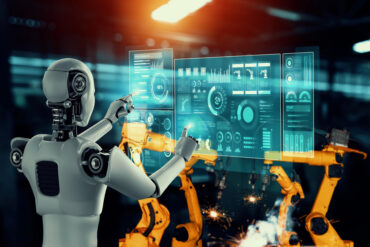
It’s never too early to start planning for tomorrow.
2020 is the year many analysts and industry experts have marked as the start point of new technologies coming online. Developments are expected in areas ranging from mobile operators rolling out 5G in earnest next year to many car manufacturers launching their first autonomous vehicles.
In a recently published infographic, principal analyst of Futurum Research, Daniel Newman, shared his digital transformation trends coming in the next year. Here are a few of them:
- 5G is in its infancy, although some mobile providers and carriers are already selling services “ready for 5G”. It is likely that the first 5G-lite networks will come online in the U.S. and Europe by 2020, although the infrastructure for full-5G may take a few more years.
- WiFi 6 has not received the same skittish enthusiasm as 5G, perhaps because instead of huge theoretical upgrades in speed, it offers nuanced improvements. WiFi 6 should make bandwidth issues a thing of the past, letting more bandwidth-intensive devices to run through one router without achingly slow speeds.
- Analytics are becoming a necessity for many industries and, as Newman puts it: “Companies that still aren’t investing heavily in analytics by 2020 probably won’t be in business in 2021.” With so much data available for companies to process, it sounds like financial suicide to leave the data in silos and “go with your gut”.
- AI and machine learning are game-changers for businesses, as AI improves speed, scale and convenience of analytics. With improvements to scalability in the cloud and new machine learning platforms specifically for analytics debuting, it may become a necessity to combine AI with all analytical software.
- Blockchain may see a second coming, according to Newman, for things like food safety, intellectual property and royalties, and real estate/asset management. Blockchain-as-a-service platforms, provided by Amazon Web Services and others may create the in-road into this new technology.
- Robotic Process Automation (RPA) is another digital transformation that Newman sees evolving in 2020. Integrating RPA into data systems may be a way of improving productivity in a company, by putting bots and humans side-by-side.
- Conversation AI, found inside every iPhone and high-end Android device in the form of Siri or Google Assistant, will become more useful in 2020. This will partly come from new chipsets and SOCs specifically designed to hear human voices, and partly from improvements in the software, enabling better understanding of nuances of emotion.
- Autonomous vehicles will start limited runs in the real world, most likely starting with shuttle services in major cities. Singapore and cities in China have already trialed these shuttle services, which are far less labor-intensive for the self-driving computer, as they only need to learn a handful of routes. Full taxi services may take another five years.





























